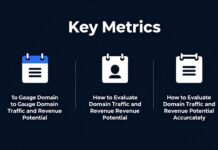In the ever-evolving landscape of domain registration policies, staying updated with ICANN news is crucial for businesses and individuals alike. This article delves into the latest updates on domain registration policies as released by the Internet Corporation for Assigned Names and Numbers (ICANN). Have you ever wondered how these changes could affect your online presence? With the digital realm becoming more competitive, understanding ICANN’s decisions can be a game changer for your website’s visibility and credibility.
In recent months, ICANN has proposed several significant updates that could reshape the way domain names are registered and managed. From new regulations aimed at enhancing user privacy to updated processes for domain transfers, these changes are designed to keep pace with the rapidly changing internet landscape. Are you prepared for the impact of these policies on your domain strategy? This article will break down the essential updates, providing you with the knowledge you need to navigate the complexities of domain registration in today’s digital world.
Moreover, the implications of these updates extend beyond just registration; they could influence everything from online marketing strategies to website security. Keeping abreast of ICANN news not only empowers you to make informed decisions but also helps you stay ahead of your competitors. So, buckle up as we explore the latest insights into ICANN’s domain registration policies and discover how they could potentially transform your approach to managing your online identity. Don’t miss out on these vital updates that could redefine your digital footprint!
10 Key Changes in ICANN’s Domain Registration Policies You Need to Know for 2023
The world of domain registration is ever-changing, and if you’re not paying attention, you might miss some crucial updates. In 2023, ICANN (Internet Corporation for Assigned Names and Numbers) has rolled out some key changes that all domain registrants should be aware of. There’s a lot of information out there, but let’s simplify it to the 10 most important changes that could affect your domain ownership and management.
1. New Privacy Regulations
One of the most significant changes in 2023 was the tightening of privacy regulations. Registrars must now provide clearer options for domain privacy protection. This means that you might see more choices on how your personal information is displayed in WHOIS databases. If you’re not careful, you could unintentionally expose sensitive data.
2. Enhanced Domain Transfer Process
ICANN has introduced a more streamlined process for transferring domains between registrars. This update aims to reduce the time it takes to complete a transfer, which previously took several days. Now it’s more efficient, but registrants need to pay attention to the new requirements to avoid delays.
3. Increased Fees for Certain TLDs
As of this year, some top-level domains (TLDs) have seen a hike in registration fees. For example, .com domains are now slightly more expensive. This could affect your budget if you’re planning to register multiple domains. Always check the latest pricing before making any decisions.
4. Mandatory Two-Factor Authentication
To enhance security, ICANN now mandates that all registrars implement two-factor authentication (2FA) for domain management. This step is meant to protect domain owners from unauthorized access. If you haven’t set up 2FA yet, it’s high time you did.
5. Stricter Enforcement of Domain Name Abuse Policies
ICANN is cracking down on domain name abuse, including phishing and spam. Registrars are now required to take an active role in monitoring and reporting abusive behavior. If you’re a registrant, you’ll want to ensure that your domain isn’t used for malicious purposes, or you might face penalties.
6. Revamped Dispute Resolution Procedures
The dispute resolution procedures have been updated to make them more accessible and efficient. This includes clearer guidelines for resolving disputes over domain ownership. If you find yourself in a domain dispute, it’s crucial to familiarize yourself with these new procedures to navigate them effectively.
7. Simplified Domain Name System Security Extensions (DNSSEC)
ICANN has worked on making DNSSEC easier to implement. This security measure helps protect against certain types of attacks. For those who have not yet adopted DNSSEC, now might be the perfect time to consider it, as the new guidelines aim to simplify the process.
8. New Domain Name Registration Policies for Non-English Characters
With the growing use of non-English characters in domain names, ICANN has updated its policies to better accommodate these domains. This change allows for a more diverse range of languages and scripts in domain registration. If you’re in a multi-lingual market, this could open up new opportunities.
9. Periodic Review of Registrar Compliance
ICANN is now conducting more frequent reviews of registrar compliance with its policies. This means registrars must continuously meet standards or face penalties. As a registrant, you may want to choose registrars that consistently comply with ICANN regulations to avoid any issues down the line.
10. Transparency in Pricing and Services
Finally, ICANN has emphasized the need for greater transparency regarding pricing and services from registrars. They’re encouraging registrars to clearly outline their fees and offerings, which is great news for domain buyers. You should always read the fine print and be aware of what you’re paying for.
Summary of Key Changes
- New Privacy Regulations: More options for privacy protection.
- Enhanced Domain Transfer Process: Faster transfers with new requirements.
- Increased Fees for Certain TLDs: Higher costs for some domains.
- Mandatory Two-Factor Authentication: Added security for domain management.
- Stricter Enforcement of Domain Name Abuse Policies: Increased monitoring of abuse.
- Revamped Dispute Resolution Procedures: More accessible dispute handling.
- Simplified DNSSEC Implementation: Easier security for domains.
- New Policies for Non-English Characters: More diversity in domain names.
- Periodic Registrar Compliance Review: Ongoing compliance checks.
- Transparency in Pricing and Services: Clearer fee structures from registrars.
Staying informed about ICANN’s changes is essential for all domain owners. These updates might seem minor, but they can have a significant impact on how you manage your domains. Make sure you keep an eye on these updates and adjust your strategies accordingly to navigate the domain registration landscape effectively.
How ICANN’s Latest Updates on Domain Registration Impact Your Online Business: A Comprehensive Guide
In the fast-paced digital world, keeping up with regulations can be a daunting task for online businesses. ICANN, or the Internet Corporation for Assigned Names and Numbers, has released some important updates that affects how domain registration works. Understanding these changes is crucial for ensuring your online presence remains strong and compliant. This guide will break down the latest ICANN news and what it means for your business.
What is ICANN and Why Does it Matter?
ICANN is a nonprofit group that coordinates the maintenance and procedures of several databases related to the namespaces of the internet. This includes overseeing domain registration. It was established in 1998 and has been pivotal in ensuring that the internet remains stable, secure, and interoperable.
When ICANN updates its policies, these changes can impact:
- Domain registration processes
- Pricing structures
- Domain name availability
- Transfer policies
If you run an online business, these updates can have a significant impact on your operations and strategy.
Key Updates from ICANN
Recently, ICANN has proposed several updates that businesses should take into consideration. Here are some key changes:
Increased Transparency: ICANN is pushing for more transparency in the registration process. This means registrars must provide clearer information about pricing and services. It’s important to read the fine print when registering a domain.
WHOIS Data Policy Changes: Changes to WHOIS data policies require registrars to handle personal information more carefully. This is in response to privacy concerns. Businesses now has to be more diligent about how they collect and display personal data.
Domain Transfer Policies: ICANN is revising its policies around domain transfers. This aims to simplify the process and make it easier for business owners to transfer their domains if needed.
How These Updates Affect Your Business
Understanding how these updates directly impact your online business can be complicated. Here’s a breakdown of the potential effects:
Cost Implications: The new transparency requirements could lead to more competitive pricing among registrars. While this might be good for consumers, it could also result in hidden fees. Always ask for a breakdown of costs.
Privacy Compliance: With WHOIS data changes, businesses must ensure they comply with new privacy regulations. Failing to do so can lead to penalties or loss of domain. If your business collects customer data, review your processes to ensure compliance.
Simplified Transfers: The new domain transfer policies could mean that switching registrars become less of a headache. However, it’s still imperative to understand the transfer process and any potential downtime for your website.
Practical Steps for Business Owners
To navigate these ICANN updates effectively, consider the following actions:
Review Your Domain Registrations: Take a close look at all your domain registrations. Are they up-to-date? Are you aware of the renewal dates?
Stay Informed: Subscribe to ICANN newsletters or follow them on social media. This will help you stay updated on future changes.
Consult with Experts: If you’re unsure about how these updates affect your specific situation, consider consulting with a domain expert or legal advisor.
Educate Your Team: Make sure your team understands these updates, especially if they handle domain registrations or customer data.
Comparison of Old and New Policies
Here’s a simple comparison of some old versus new policies:
| Policy Aspect | Old Policy | New Policy |
|---|---|---|
| WHOIS Data | Less stringent privacy requirements | Stricter privacy measures |
| Domain Transfers | Complicated procedures | Simplified transfer process |
| Registration Fees | Often hidden fees | Transparent pricing expected |
The Bottom Line
ICANN’s latest updates on domain registration present both challenges and opportunities. For online businesses in New York and beyond, staying informed about these changes is not just a good idea — it’s essential for ensuring your business remains competitive and compliant in the digital landscape. Embracing these updates could help streamline your operations, enhance your customer privacy, and potentially save costs in the long run. By taking proactive steps, you can position your business for success in an ever-evolving digital environment.
Are You Compliant? Understanding ICANN’s New Domain Registration Rules for 2023
As the digital landscape continues to grow and evolve, the importance of adhering to proper regulations, especially in domain registration, cannot be overstated. The Internet Corporation for Assigned Names and Numbers (ICANN) has made significant updates to its domain registration policies in 2023, and it’s crucial for domain owners, registrars, and any stakeholders in the domain marketplace to understand these changes. So, are you compliant? Let’s dive into what these new rules mean and how they impact you.
ICANN’s Role in Domain Registration
ICANN is the organization responsible for managing and coordinating the domain name system (DNS) globally. Established in 1998, it plays a pivotal role in ensuring that every domain name is unique and that all users of the internet can find valid addresses. It creates policies that govern the registration of domain names, and these policies are designed to protect users and maintain the integrity of the internet.
Key Updates in 2023
In 2023, ICANN introduced several critical updates to its domain registration rules. These changes are aimed at enhancing security, preventing fraud, and ensuring a more transparent registration process. Here’s a quick summary of the latest updates:
Enhanced WHOIS Accuracy: Registrars must now verify the accuracy of contact information provided by domain registrants more rigorously. This helps ensure that domain ownership details are correct and up-to-date.
Mandatory Registration Lock: New domains must be locked by default for at least 60 days after registration to prevent unauthorized transfers. This is aimed at reducing the risk of domain hijacking.
Improved Privacy Protections: Registrars are required to offer privacy services to help protect personal information of domain owners, which is essential in today’s data-sensitive environment.
Increased Fees for Non-compliance: Registrars who fail to comply with ICANN’s new rules will face higher fees, which could ultimately affect the prices passed on to customers.
Impacts on Domain Registrants
For individuals and businesses looking to register domain names, these updates can have several implications. Here’s what you need to know:
Be Prepared for Verification: If you’re registering a new domain, be prepared to provide accurate contact information. Incorrect details can lead to domain suspension.
Understand the Locking Policy: The 60-day lock means you won’t be able to transfer your domain immediately after registration. This is important to consider if you plan on selling or transferring domains quickly.
Utilize Privacy Services: Take advantage of privacy protection services offered by registrars. These services can help shield your personal information from public view.
Financial Considerations: Factor in the potential for increased registration fees. Non-compliance penalties could eventually trickle down to domain buyers.
Historical Context of ICANN Policies
To better understand the significance of these new rules, it helps to look back at ICANN’s historical approach to domain registration:
- 1998: ICANN was founded, providing a framework for domain name management.
- 2005: The introduction of the WHOIS database aimed at creating transparency in ownership.
- 2016: ICANN introduced the GDPR compliance measures to protect user data.
- 2023: The latest updates focus on fraud prevention and security enhancements.
This historical context shows a clear trend towards increasing the security and integrity of domain registrations over the years.
Practical Examples of Compliance
Here are some practical scenarios that illustrate how these updates affect various stakeholders:
A Startup Launching a New Website: They register a domain but must ensure their contact information is accurate. Failing to do so could result in losing their domain after a verification process.
An Established Business Selling Domains: They need to inform their clients about the new 60-day transfer lock, which can affect their selling strategy.
Domain Investors: Those who frequently buy and sell domains must adapt their practices to comply with the new locking policy and ensure their information is always up-to-date.
Conclusion
Understanding ICANN’s new domain registration rules is crucial for anyone involved in the domain marketplace in New York or elsewhere. By being aware of the changes, registrants can better navigate the complexities of domain ownership and ensure compliance. The landscape is always shifting, and staying informed is key to maintaining your online presence effectively. Embrace these updates not just as regulations, but as opportunities to enhance security and trust in your digital ventures.
The Future of Domain Names: What ICANN’s Recent Decisions Mean for Registrants and Businesses
The digital landscape is constantly evolving, and domain names are no exception. Recently, ICANN (the Internet Corporation for Assigned Names and Numbers) made some critical decisions that could significantly shape the future of domain registration policies. For businesses and registrants, understanding these changes is crucial for navigating the online marketplace effectively. In this article, we explore what ICANN’s recent decisions mean for you and your business, along with essential updates on domain registration policies.
What is ICANN and Why It Matters?
ICANN is a nonprofit organization that plays a pivotal role in maintaining the stability and security of the internet. Founded in 1998, it oversees a wide range of functions, including the allocation of domain names and IP addresses. Its decisions can have widespread impact across the globe, affecting millions of registrants and businesses.
Here’s a quick overview of ICANN’s responsibilities:
- Domain Name System (DNS) management
- IP address allocation
- Accreditation of domain name registrars
- Ensuring the security and stability of the internet
Recent ICANN Decisions: What You Need to Know
The latest decisions from ICANN have sparked discussions among industry experts and business owners alike. Some key updates include:
New gTLDs (Generic Top-Level Domains): ICANN is pushing for the introduction of more gTLDs, which could allow businesses to have more options when choosing domain names. This opens up opportunities for more niche and specific branding.
Domain Transfer Policies: Changes in policies are aimed at making domain transfers simpler and more secure. This includes removing some outdated requirements that used to complicate the transfer process.
Privacy and Data Protection: With growing concerns around data privacy, ICANN is tightening regulations about how registrars handle personal information, especially in compliance with new global laws like GDPR.
Increased Fees: There’s a potential increase in fees for certain domain registrations and renewals. This could impact smaller businesses significantly, as costs might rise unexpectedly.
Implications for Registrants and Businesses
These updates from ICANN has several implications for registrants and businesses. Here are a few points to consider:
More Choices: The introduction of new gTLDs can provide a broader range of options for businesses looking to create a unique online identity.
Simplified Processes: Enhanced domain transfer policies may make it easier for businesses to switch registrars or acquire new domains without unnecessary complications.
Compliance Necessity: Businesses must ensure they are compliant with new privacy regulations. This means reviewing current practices and possibly investing in new systems to protect user data.
Budget Adjustments: With potential fee increases, businesses need to budget more for domain registrations and renewals. This can be crucial for small businesses or startups.
How to Prepare for These Changes
It’s essential to stay proactive about these updates. Here’s a list of steps you can take to prepare your business:
Review Your Domain Portfolio: Assess your current domain names and determine if any adjustments are needed.
Research New gTLDs: If new gTLDs become available, explore how they could align with your branding strategy.
Stay Informed: Regularly check ICANN news and updates regarding domain registration policies to remain compliant.
Consult with Professionals: If your business heavily relies on domain registrations, consider consulting with a domain expert or attorney to navigate these changes effectively.
Comparison of Old vs. New Policies
Here’s a simple table comparing the old policies with the new updates from ICANN:
| Policy Area | Old Policies | New Policies |
|---|---|---|
| gTLD Availability | Limited options | Expanded choices with new gTLDs |
| Domain Transfers | Complex, time-consuming processes | Streamlined, simplified transfer procedures |
| Data Protection | Vague guidelines | Stricter regulations in line with global data laws |
| Registration Fees | Fixed pricing | Possible increase in fees for registrations and renewals |
As the domain landscape continues to change, registrants and businesses must stay adaptable. ICANN’s recent decisions are not just administrative moves; they are shaping the way we interact with the digital world. By understanding these changes and preparing accordingly, you can ensure that your business remains competitive and compliant in this dynamic environment. Embrace the future of domain names, and make the most out of ICANN’s essential updates.
Unlocking the Secrets: 5 Essential ICANN Updates on Domain Registration Policies You Can’t Afford to Miss
The world of domain registration is constantly evolving, and keeping up with the latest changes from the Internet Corporation for Assigned Names and Numbers (ICANN) is vital for anyone involved in the domain marketplace. Recently, several key updates have been announced that could significantly impact how domains are registered and managed. If you are a domain investor, reseller, or simply someone interested in the digital landscape, you cannot afford to miss these essential ICANN updates. Let’s dive into the five crucial changes that could affect you.
1. New WHOIS Policy Framework
ICANN has implemented a new framework for WHOIS information, which is crucial for domain registrants. This change aims to enhance privacy while still allowing for accountability.
- Registrars must now provide clear privacy options for domain owners.
- The new policies also require that the WHOIS information must be accurate and up-to-date.
- This means domain owners may need to verify their information periodically.
This is a significant shift, as many registrants previously had less stringent requirements. If you own a domain, you might find yourself needing to update your records more frequently to comply.
2. Changes to Domain Transfer Rules
Another noteworthy update involves the rules surrounding domain transfers. Effective immediately, ICANN has altered the process to make it easier for domain owners to switch registrars without facing excessive delays.
- Domain owners can now initiate a transfer with fewer restrictions.
- The 60-day lock period after registration has been removed for many domain types.
- However, registrars still have the option to impose their own policies, so be sure to check before initiating a transfer.
This is good news for those who feel trapped with their current registrar and want more flexibility in managing their domains.
3. Enhanced Security Measures
ICANN has been working hard to improve security across its network. As part of this effort, there are new measures that registrars must implement to protect domain owners from fraud and theft.
- Registrars are now required to adopt multi-factor authentication for account access.
- There’s also a push for stronger encryption methods for data transmission.
- This helps ensure that your domain and personal information stay secure from potential breaches.
As a domain owner, you should be proactive in choosing registrars who comply with these new security standards.
4. Policy for New gTLDs
The rollout of new generic Top-Level Domains (gTLDs) has been a hot topic for several years. ICANN has made adjustments to how these new gTLDs are introduced to the market.
- New gTLDs will now undergo a more rigorous evaluation process.
- There will be stricter guidelines on how they can be marketed.
- This is aimed at reducing confusion and ensuring that new domains serve a clear purpose.
If you’re considering investing in a new gTLD, it’s important to stay informed about these guidelines to ensure compliance and maximize your investment.
5. Review of Domain Name Dispute Resolution Policies
ICANN has also announced a comprehensive review of its domain name dispute resolution policies. This is crucial for anyone involved in domain investing or management.
- The review looks at how disputes are handled and aims to streamline the process.
- It seeks to improve fairness and efficiency in resolving conflicts over domain ownership.
- New guidelines will be established to clarify what constitutes a valid complaint.
Understanding these changes is essential if you ever find yourself in a dispute over a domain name.
Summary of Key ICANN Updates
| Update | Details |
|---|---|
| WHOIS Policy Framework | Stricter privacy requirements; accuracy verification needed. |
| Domain Transfer Rules | Easier transfers; removal of 60-day lock for many domains. |
| Enhanced Security Measures | Multi-factor authentication required; stronger encryption methods. |
| Policy for New gTLDs | More rigorous evaluation process; stricter marketing guidelines. |
| Review of Dispute Resolution Policies | Streamlined process; new guidelines for complaints. |
These updates reflect ICANN’s commitment to improving the domain registration process and protecting domain owners. With the constant changes in the digital landscape, staying informed about these policies is crucial.
In the dynamic world of domain registration, knowledge is power. Make sure to adapt to these changes and consult with your registrar for specific details on how they may impact you. The domain marketplace is full of opportunities, and by understanding these ICANN updates, you can navigate it more effectively.
Conclusion
In conclusion, the recent updates from ICANN regarding domain registration policies highlight significant changes aimed at enhancing security, transparency, and user experience in the domain name ecosystem. The introduction of stricter verification processes and the emphasis on protecting registrants’ data are critical steps towards combating abuse and fostering trust within the industry. Additionally, the discussions surrounding the expansion of new gTLDs present exciting opportunities for businesses and individuals to establish unique online identities. As these policies continue to evolve, it is vital for domain registrars, web developers, and end-users to stay informed and adapt accordingly. We encourage everyone to engage with these developments actively, whether by participating in public comment periods or by reviewing and updating their own domain management practices. By doing so, you can help contribute to a safer and more robust domain name system for all.













